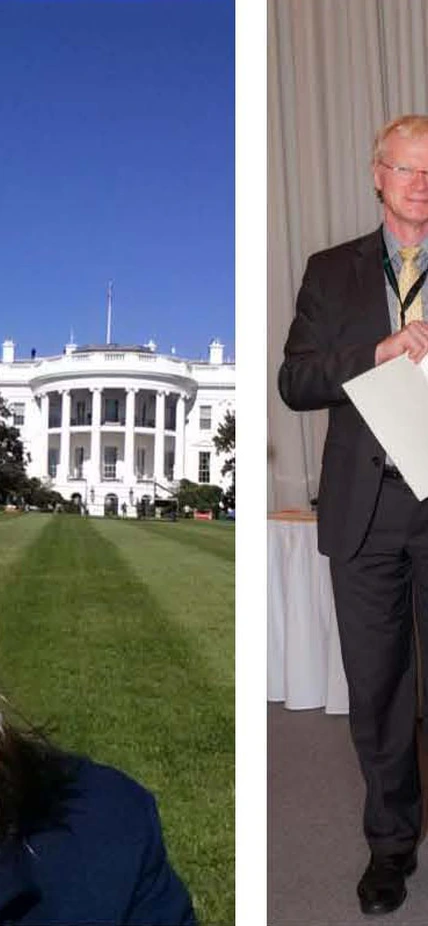Pasadena, CA— The Astronomical Society of the Pacific (ASP) has announced that the Carnegie Observatories’ postdoctoral associate Rachael Beaton will receive the 2016 Robert J. Trumpler Award. In addition, the Observatories’ Carnegie-Princeton Fellow Eduardo Bañados received the Otto Hahn Medal from Germany’s Max Planck Society. Beaton’s Trumpler Ward is for a recent Ph.D. thesis “considered unusually important to astronomy.” The Otto Hahn Medal honors young researchers for outstanding scientific achievements.
Beaton studies the structure of galaxies to probe their evolution and formation. In particular she investigates the outer halos of galaxies because they are billions of years old and the stars can retain a “memory” of how they arrived there via merging events with other galaxies. She is interested in identifying the chemical building blocks in the halos to piece together the evolutionary puzzle. She primarily explores the nearby galaxy M31 using techniques that other astronomers use to study the Milky Way. Beaton’s dissertation, honored by the ASP, was entitled Life in the Outer Limits: Insights on Hierarchical Assembly from Stellar Halos in the Local Universe. She received her B.A., M.S. and Ph.D. degrees from the University of Virginia. She was a Jefferson Graduate Fellow there before joining Carnegie.
Bañados’ work explores how and when the first stars, galaxies, black holes, and structure of the universe evolved. He received the Otto Hahn Medal “for groundbreaking studies regarding the characterization of quasars in the very early universe.” Quasars are supermassive black holes accreting material in the center of massive galaxies. They are the most luminous objects in the universe and the most distant objects that can currently be studied in detail, providing a snapshot of our infant universe. Bañados uses data from various large sky surveys and conducts follow-up programs using data from numerous 6- to 10-meter-class telescopes. He did his undergraduate work at the Pontificia Universidad Católica de Chile, then his Ph.D. in astronomy at the Max Planck Institute for Astronomy in Heidelberg, Germany.
Observatories Director John Mulchaey remarked, “We pride ourselves in having one of the best postdoc programs in all of astronomy and astrophysics. The awards given to Rachael and Eduardo for their research demonstrate that we are attracting some of the best and brightest young astronomers to work at The Observatories.”
-----
